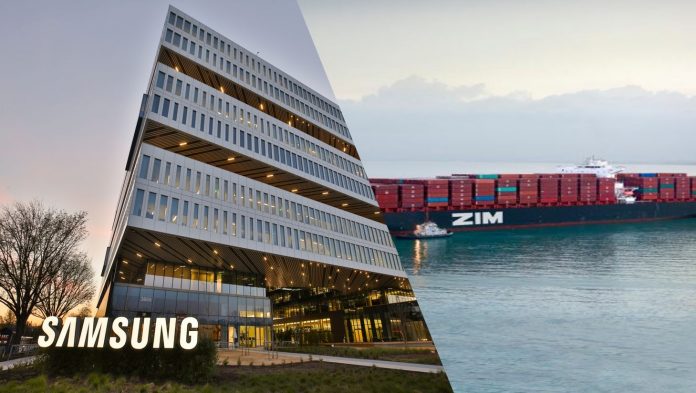The US Federal Maritime Commission (FMC) on 22 April ruled in favour of Samsung Electronics Asia, which complained about ZIM Line’s unfair demurrage and detention charges.
Many of these shipments occurred prior to the Ocean Shipping Reform Act, passed in 2022, which created the FMC’s charge complaint process. The charge complaint process is designed to resolve disputes quickly and is a resource for any entity engaged in similar disputes.
The accumulation of disputed charges was one of the reasons that ZIM imposed multiple cargo holds on SEA’s shipments. These cargo holds prevented SEA’s cargo from being delivered and led to additional demurrage charges.
The disputes continued to grow until they encompassed 9,984 separate demurrage and detention charges on 2,980 containers shipped from South Korea to the United States between July 2019 and December 2022, making this a complex proceeding to resolve.
ZIM was responsible for ocean and inland transportation, known as carrier haulage, so the Israeli ocean carrier paid the truck driver to deliver the containers. Many of the truck drivers were recommended by Samsung Electronics.
ZIM responded that Samsung Electronics wanted to get back all monies paid to the Israeli ocean carrier and third parties, alleging that the South Korean electronics giant’s actions contributed to these charges being incurred.
The parties thoroughly litigated the case, exchanging more than 200,000 pages of documents, and many expert witnesses were called.
Chief Administrative Law Judge Erin Wirth agreed that Samsung Electronics had established that multiple cargo holds were unreasonable practices.
She wrote: “ZIM’s arguments that the cargo holds were justified as a valid expanded maritime lien are not sufficient to overcome established Shipping Act precedent, including a prior case against ZIM. Moreover, given the numerous ZIM billing errors, Samsung Electronics Asia has established that the cargo holds were also not reasonable or justified by the facts.”
Judge Wirth has indicated, however, that Samsung Electronics is entitled to about US$3.7 million of compensation, far from the US$12 million the South Korean conglomerate demanded.
Explaining her decision to award a lower amount of compensation, the judge agreed that while it was unreasonable for ZIM to shift liability for demurrage and detention charges to Samsung Electronics solely on the basis that a preferred or customer-nominated trucker was employed, although reparations were not awarded due to the challenges in determining who was responsible for each demurrage charge.
Samsung Electronics had also failed to prove which specific detention and demurrage charges were ZIM’s fault, especially when some charges were due to the electronics maker’s customers’ inability to accept deliveries. Therefore, it was fair for ZIM to charge Samsung Electronics demurrage for store-door/carrier haulage.
Alison Koo
Asia Correspondent







